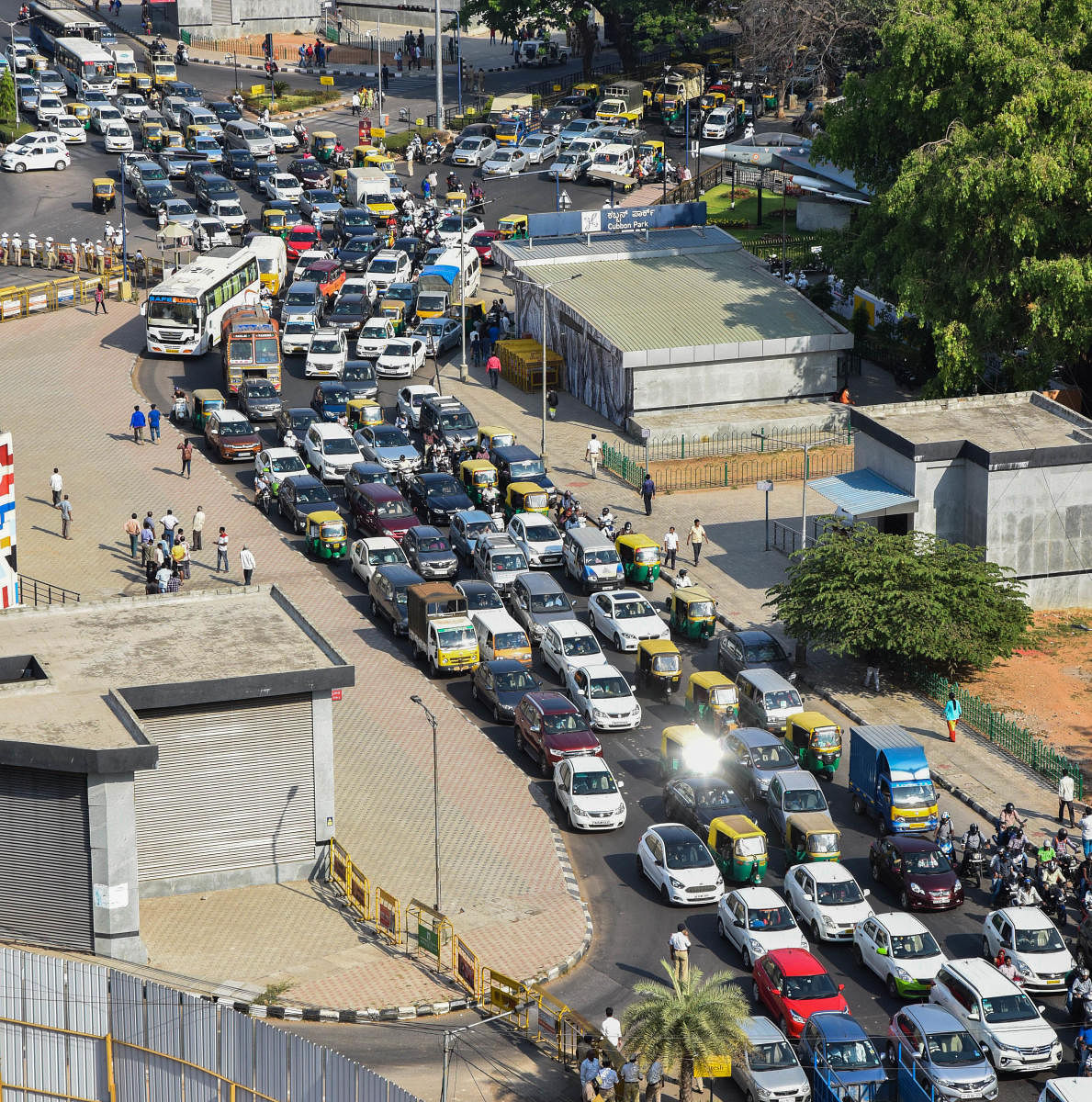
The vehicle population in Bengaluru has crossed 80 lakh, as the city, which has already overtaken Mumbai, Hyderabad and Chennai, is now behind only Delhi’s 1.5 crore vehicles. The national capital, however, fares better with a road length of over 30,000 km compared to 10,000 km in Bengaluru.
Transport commissioner V P Ikkeri gave the vehicle numbers for the city at a press conference here on Monday. “The number of vehicles in Bengaluru was 74.06 lakh and it has increased to 80.45 lakh now. The vehicle population in the state has gone up to 2.10 crore,” he said.
The trend of the addition of five to six lakh vehicles each year indicates that the number of vehicles within the Bengaluru metropolitan area will cross one crore in about three years. This is a cause for concern as vehicles are major contributors to pollution, apart from construction activities, in the city.
The vehicle population in the city doubled Mumbai’s tally (36 lakh) last year had stayed ahead of Chennai (56 lakh) and Hyderabad (52 lakh). However, limited infrastructure and lack of regulation will only worsen the situation in the coming days.
Ikkeri said the department can’t stop registration of new vehicles to contain the population and the growing threat to the environment. He said they are trying to promote electric vehicle as a solution.
Health hazard
KSPCB had previously noted that traffic and emission account for 62% of fine dust of which emission contributes only 30%. The dust, especially PM 2.5 dust, has been proven to be harmful to lungs and blood.
Leo Saldanha of the Environment Support Group cited the Lancet study which said 70 lakh people across the world died due to air pollution. “Of them, 20% were Indians. Governments should recognise the fact that we are at a crucial juncture and take bold measures. This is possible only when they value public health over private vehicles,” he said.
He said the 6,000 BMTC buses in the city account for less than 1% of the traffic on the road and the rest of the private vehicles, 90% of them cars, should be regulated. “Developed countries are already taking steps like congestion tax and high registration and parking fees. We should introduce it now,” he said.